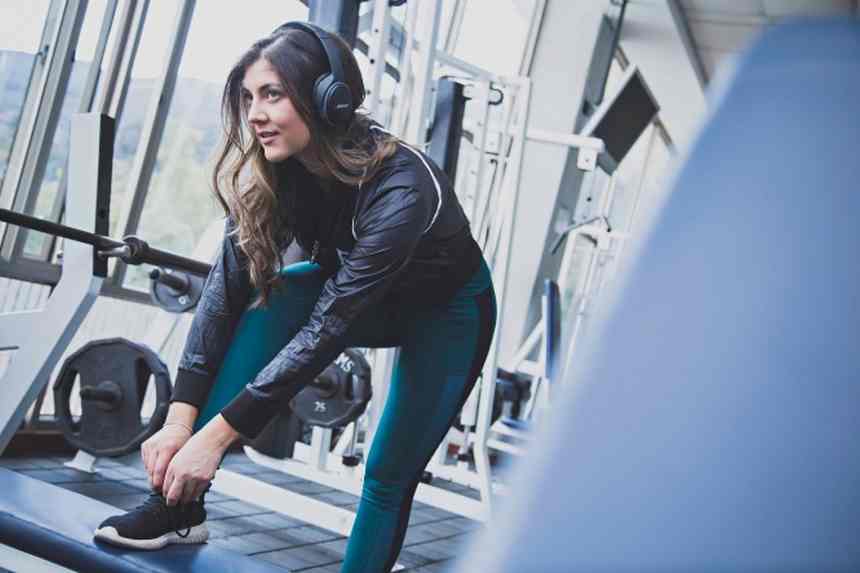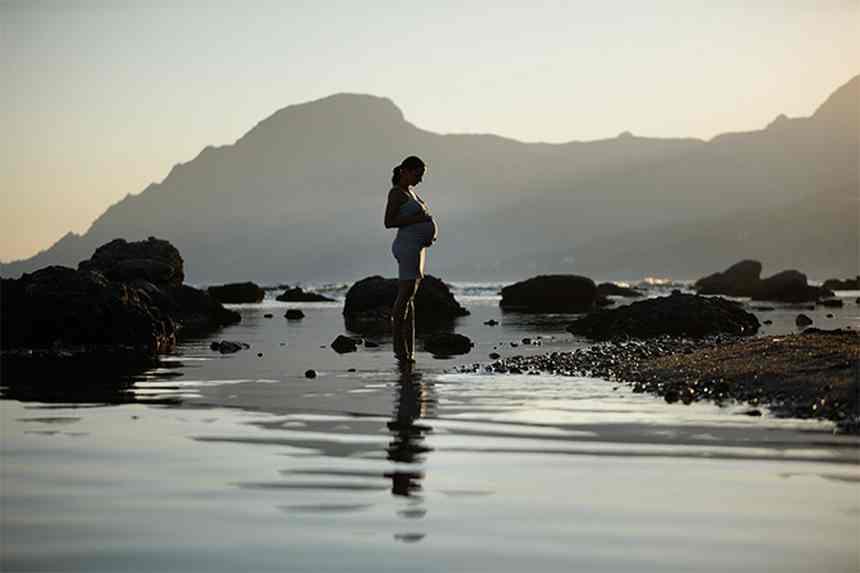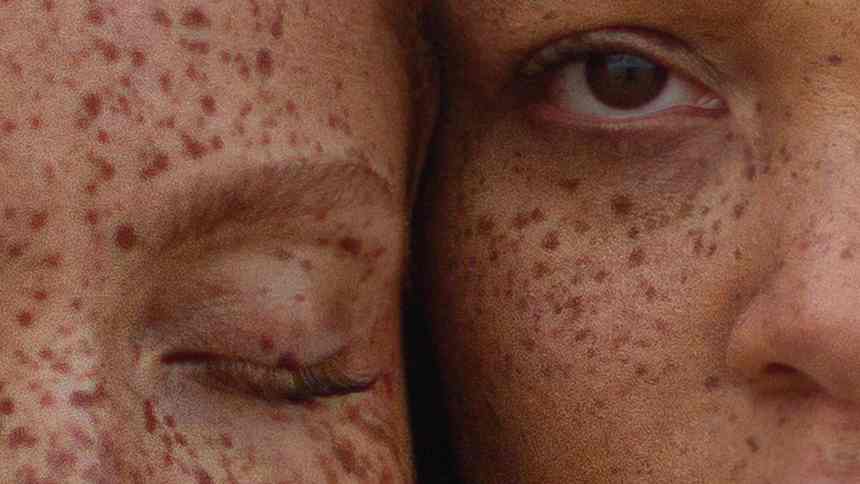Philosophers call it ‘our best teacher’, psychologists claim it’s ‘essential to the human condition’ and evolutionists credit it for our survival as a species, but anxiety has a really bad rep. Anyone who has experienced it knows just how deeply unpleasant and unsettling it can be — however, emerging data shows that there may be positive side-effects to anxiety. Since there seems to be no escaping this kind of unease at present, now might be the time to start embracing it.
Read More5 Ways A Consistent Exercise Routine Made Me Truly Happy

Anxiety is typically defined as a reaction to or anticipation of a potential threat. This is “unlike fear, which is related to the existence of a real threat,” says clinical psychologist and researcher Bettina Moltrecht, who specialises in emotional regulation, explaining that we don’t have to physically see, hear or feel a threat itself to experience anxiety.
Like all of our emotional responses, anxiety has evolutionary roots. As existential psychologist Rollo May notes, “Our very survival is the result of steps taken long ago to confront anxiety,” and while the source of anxiety has changed, the experience remains relatively the same. While we may no longer have to anticipate lions chasing after us, there are many legitimate reasons to feel anxious about the trials and tribulations of modern life.
“We worry about not getting a promotion, another person trying to flirt with our partner, someone bullying our children,” explains Courtney Carlsson, coach and founder of emotional identity app Paradym. Our cultural context can have a huge impact on our experience and, as May argues, it plays a fundamental role in the conditioning of an individual’s anxiety.
A threat to our basic needs
Anxiety is the most common of all mental disorders, but the uncertainty of the Covid-19 pandemic has exacerbated our experience of it, with rates of anxiety globally skyrocketing since March. “We are experiencing a threat to our basic needs, like the threat of not being able to pay rent or unemployment, and the threat to our physical health,” says Carlsson.
While many would think this increase would be a cause for concern, many experts argue otherwise. Akin to its evolutionary roots, research shows that anxiety can protect us from future harm, with the physiological experience acting as an important warning sign of potential threats, motivating us to protect ourselves and escape danger. It can also help push us to pursue or achieve goals.
“All emotions, including anxiety, motivate us to do certain things,” says Moltrecht, explaining that anxiety can motivate us to prepare for an important warning sign. “As long as people are able to follow their normal life, achieve their goals, and not be hindered by their anxiety, there are not many drawbacks to the experience of anxiety.”
Nineteenth-century Danish existential philosopher Søren Kierkegaard believed that anxiety was our best teacher, arguing that anxiety helps us develop ‘self-strength’ — more commonly known today as ‘emotional resilience’ — which guides us towards maturity. While he fully acknowledged how truly dreadful anxiety was, Kierkegaard also believed it was a powerful experience which, when used in a positive way as a guide to better decision-making, would enable us to grow and develop as human beings.
For example, if you were feeling anxious about travelling back to the office after lockdown, Kierkegaard would encourage you to think about why you feel it. What is it precisely that’s making you feel anxious? Perhaps you aren’t ready to return to the office just yet? Are there ways of continuing to work from home? Will you feel better if you take extra precautions? Musing over questions such as these can help us better understand ourselves and our needs, and make changes that enable us to live in more fulfilling ways.
Read MoreTrust Us, Your Lockdown-Induced Anxiety Dreams Aren’t All Bad

Anxiety can indicate vitality
Anxiety, in various degrees, is a reality for many, and although heightened by the pandemic, it’s also something that’s helping to protect us from further risks of contracting the virus. “The presence of anxiety indicates vitality,” May argues, with minor or moderate experiences relieving us from numbness, sharpening sensitivities, and creating “the tension that is necessary to preserve human experience.” Given that anxiety can make us more alert to potential threats, it has positively motivated many of us to shift our behaviours, with more people wearing masks, carrying hand sanitiser, and rethinking international travel.
Furthermore, as many have argued, this period of time has enabled a positive sense of shared experience. Our collective anxiety has played a fundamental role in bringing us together, allowing us to feel compassion for one another, which in turn works towards normalising the experience of anxiety at large.
“We are finally asking each other how we are in a more genuine way than before,” explains Charlotte Fox Weber, head of psychotherapy at The School of Life. “We have all come to accept this is a difficult time period. Life isn’t exactly how we pictured it would be. We’ve had to embrace uncertainty and accept that we aren’t in control in various ways, but it has taught us about the importance of connection in a whole new way.”
Reframing your view of emotions
That said, Fox Weber cautions running off with anxious thoughts. “Anxiety can be hugely imaginative and come up with all sorts of fantastically fabricated scenarios.” She explains that anxious people sometimes feel they’re paying closer attention to dangers than less-anxious types, but more often than not, anxiety exaggerates, amplifies and distorts what’s actually happening.
As such, instead of seeing anxiety as something that is either good or bad, Fox Weber suggests reframing our view of emotions, remembering they are fleeting and constantly changing. “Anxiety is unpleasant and uncomfortable, but it all gets very meta when we start lamenting over the existence of an emotional state,” she continues. “It’s deeply consoling to recognise that emotional states are transient.” That anxiety over returning to work may feel acute one day and lessen the next, which is something to remember when the anxiety overcomes you.
Of course, we cannot and should not understate the negative impact of anxiety. Not least for the more acute sufferer, but further still for those struggling as a result of the detrimental impact of the pandemic. But, if Covid-19 has taught us anything, it is that we can control very little. While we do not know when anxiety might spike, we may be able to control our response to it. Maybe if we spend slightly less time trying to resist it and more energy deconstructing what it might be telling us, we may learn something meaningful about ourselves and our lives.
While he despaired at its presence, Kierkegaard believed anxiety was the most powerful source of education always present because we carry it within us. Perhaps next time you notice the heat of anxiety ripple through your mind and body, you may be able to remind yourself of his sentiment, asking: what is it that anxiety is trying to teach me?
More from British Vogue:








